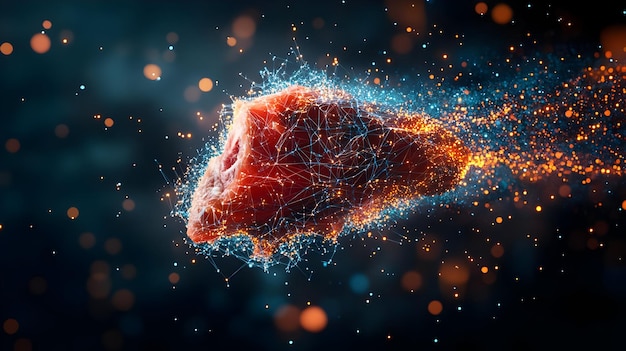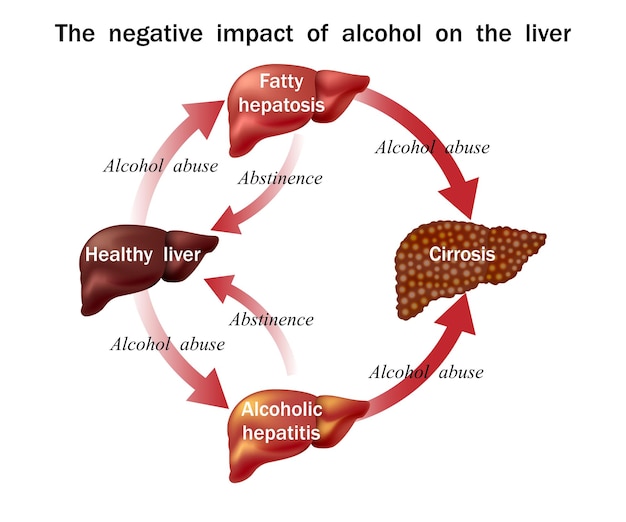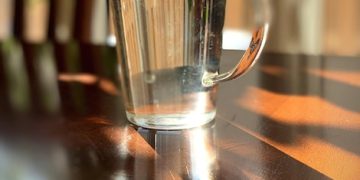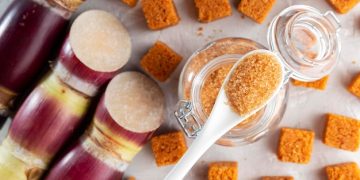Debunking Detox Myths: Science-Backed Liver Health Tips

Debunking detox myths is crucial for understanding what actually supports liver health, relying on scientifically proven methods rather than unsubstantiated claims.
The concept of ‘detoxing’ is often associated with quick fixes, but when it comes to liver health, it’s essential to separate fact from fiction. Let’s embark on **debunking detox myths: what actually works for liver health, according to science** to understand that the liver is a robust organ that performs its detoxifying functions efficiently under normal circumstances.
Understanding Liver Detoxification: The Basics
The liver is your body’s primary detoxification organ, responsible for filtering blood, metabolizing nutrients, and neutralizing harmful substances. Its functions are complex and continuous, operating efficiently without the need for specialized detox programs.
The Liver’s Natural Detox Processes
The liver detoxifies through two main phases. Phase I involves enzymes that modify toxins to make them more water-soluble, and Phase II conjugates these modified toxins so they can be excreted from the body.
- Phase I Detoxification: Enzymes like cytochrome P450 neutralize toxins.
- Phase II Detoxification: Toxins are bound to other molecules for easier excretion.
- Efficient Function: A healthy liver performs these processes continuously.
The liver relies on a continuous supply of nutrients to function optimally. These nutrients support the enzymatic reactions involved in detoxification, ensuring that the liver can effectively process and eliminate toxins.

Common Detox Myths Debunked
Many detox products and diets make claims that are not supported by scientific evidence. Knowing the truth behind these myths can help you make informed decisions about your health.
Myth 1: Detox Teas and Cleanses
Detox teas and cleanses often promise rapid weight loss and toxin elimination. However, these products can contain diuretics and laxatives, which can lead to dehydration and electrolyte imbalances.
These products rarely provide any additional benefit to the liver’s natural detoxification processes. In some cases, they can even be harmful, especially if they contain unverified ingredients or are used excessively.
Myth 2: Juice Cleanses
Juice cleanses are another popular detox method. While they may provide a temporary boost of vitamins and antioxidants, they lack essential nutrients like protein and fiber, which are crucial for overall health and liver function.
Juice cleanses can also be high in sugar, which can lead to elevated blood sugar levels and potentially contribute to fatty liver disease over time. A balanced diet is generally more beneficial for liver health than relying solely on juice.
Science-Backed Ways to Support Liver Health
Instead of relying on unproven detox methods, focus on lifestyle and dietary choices that are scientifically shown to support liver function. These changes can have a more lasting and beneficial impact.
Dietary Recommendations for a Healthy Liver
A balanced diet rich in fruits, vegetables, whole grains, and lean proteins provides the nutrients the liver needs to function optimally. Specific foods like leafy greens, cruciferous vegetables, and berries are particularly beneficial due to their antioxidant and anti-inflammatory properties.
- Antioxidant-Rich Foods: Berries, leafy greens, and colorful vegetables.
- Lean Proteins: Support liver cell repair and regeneration.
- Hydration: Drinking enough water to help the liver process waste.
Avoid overconsumption of processed foods, sugary drinks, and excessive alcohol. These can put extra stress on the liver and impair its ability to detoxify effectively. Maintaining a healthy weight is also important, as obesity can lead to non-alcoholic fatty liver disease.
The Role of Hydration and Proper Nutrition
Staying properly hydrated and maintaining a balanced diet are fundamental to supporting liver health. Water helps the liver flush out toxins, while essential nutrients fuel its detoxification processes.
Proper hydration ensures that the blood flows smoothly through the liver, making it easier to filter out waste products. Nutrients like B vitamins, vitamin C, and antioxidants support the enzymatic reactions involved in detoxification.
Foods to Support Liver Function
Certain foods have been shown to be particularly beneficial for liver health. These include garlic, grapefruit, beetroot juice, carrots, green tea, and olive oil.
Garlic contains compounds that activate liver enzymes, while grapefruit is rich in antioxidants. Beetroot juice can increase liver enzymes and improve bile flow. Green tea is known for its antioxidant properties, and olive oil provides healthy fats that can reduce inflammation.
The Detrimental Effects of Alcohol and Processed Foods
Excessive alcohol consumption and a diet high in processed foods can significantly impair liver function. Alcohol can damage liver cells, leading to inflammation and scarring, while processed foods often contain high levels of unhealthy fats and sugars that can contribute to fatty liver disease.
- Alcohol: Can cause liver inflammation and cirrhosis.
- Processed Foods: High in unhealthy fats and sugars.
- Fatty Liver Disease: Can lead to liver damage and dysfunction.
Limiting alcohol intake and reducing consumption of processed foods can help protect the liver and allow it to function more efficiently. Focus on whole, unprocessed foods to support liver health and overall well-being.

Lifestyle Changes for a Healthy Liver
In addition to diet, certain lifestyle changes can have a positive impact on liver health. Regular exercise, stress management, and avoiding exposure to environmental toxins are all important factors.
Regular exercise helps improve circulation and reduce inflammation, while stress management techniques like meditation and yoga can reduce cortisol levels, which can negatively impact liver function. Avoiding exposure to environmental toxins like pesticides and pollutants can also help minimize the liver’s workload.
Exercise and Stress Reduction
Aim for at least 150 minutes of moderate-intensity aerobic exercise each week. This can include activities like brisk walking, cycling, or swimming. Stress reduction techniques like deep breathing, meditation, and yoga can also be beneficial.
Exercise and stress reduction help maintain a healthy weight, reduce inflammation, and improve liver function. Combining these lifestyle changes with a balanced diet can provide comprehensive support for liver health.
| Key Point | Brief Description |
|---|---|
| 💪 Natural Detox | Liver detoxifies naturally; no need for special diets. |
| 🍎 Balanced Diet | Eat nutrient-rich foods for liver support. |
| 💧Hydration | Drink plenty of water to aid liver function. |
| 🚫 Avoid Excess | Limit alcohol & processed foods for liver health. |
Frequently Asked Questions
▼
The liver’s primary function is to filter blood coming from the digestive tract before passing it to the rest of the body. It also detoxifies chemicals and metabolizes drugs.
▼
No, detox teas are not generally beneficial. They often contain diuretics or laxatives that can lead to dehydration and don’t support the liver’s natural processes.
▼
Foods like garlic, grapefruit, beetroot juice, carrots, green tea, and olive oil can support liver function due to their antioxidant and anti-inflammatory properties.
▼
Excessive alcohol consumption can damage liver cells, leading to inflammation and scarring. This can result in conditions like alcoholic hepatitis and cirrhosis.
▼
Lifestyle changes like regular exercise, stress management, and avoiding exposure to environmental toxins can improve liver health by reducing inflammation and minimizing the liver’s workload.
Conclusion
In conclusion, while the idea of a ‘detox’ might be appealing, supporting your liver health is best achieved through consistent, science-backed methods. Focus on a balanced diet, proper hydration, and healthy lifestyle choices to keep your liver functioning at its best.





